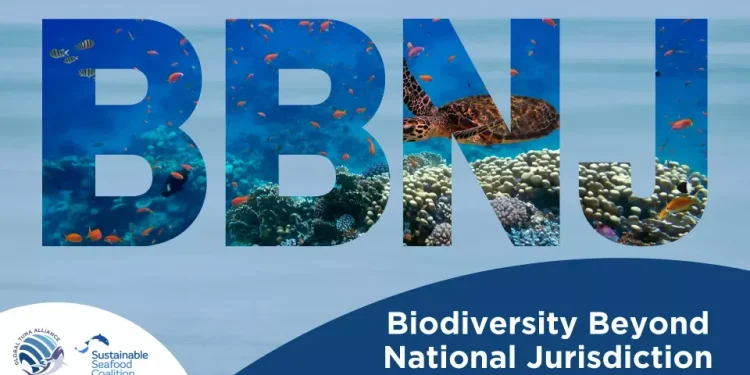Antigua and Barbuda is among several countries around the globe taking part in a crucial meeting at the United Nations that is seeking to establish the framework for the effective execution of the landmark High Seas Treaty.
The agreement, which was adopted in 2023, known officially as the Biodiversity Beyond National Jurisdiction Treaty or BBNJ, seeks to protect ocean life beyond the national boundaries of respective countries.
With the dependence on island states, like Antigua and Barbuda, on the biodiversity of the ocean for food and livelihoods, the treaty is extremely crucial in maintaining the long term sustainability of marine resources.
The BBNJ Agreement ultimately aims to conserve and sustainably use marine biological diversity in areas beyond national jurisdiction through effective implementation of the United Nations Convention on the Law of the Sea.
Representing Antigua and Barbuda at the two-week Preparatory Committee (PrepCom) meeting are Legal Officer at the Antigua and Barbuda Department of Marine Services and Marine Shipping (ADOMS) Darius Joseph and Crown Counsel at the Office of the Attorney General of Antigua and Barbuda Zachary Phillips.
They joined First Secretary at the Antigua and Barbuda Mission to the United Nations, Asha Challenger for the opening session of the meeting Monday. Challenger also represents Antigua and Barbuda as Vice Chair of the Preparatory Commission.
The PrepCom is focused on a number of key areas to include the establishment of institutional arrangements for the effective execution and management of the treaty and discussions on the capacity building and technology transfer needs for developing countries.
Other matters include financing options, especially for SIDS, and the design of systems for monitoring, reporting and compliance of the provisions of the Treaty.
“The PrepCom is a crucial step in establishing the institutional arrangements for the BBNJ agreements. It represents a critical phase in turning political will into practical action to protect marine biodiversity in areas beyond national jurisdiction,” Challenger explained.
Presently, 21 countries have ratified the BBNJ treaty, but for it to come into force, it needs to be ratified by 60 countries. Challenger expressed hope that the pace of ratifications will steadily increase so that the first Conference of Parties (COP) can be held in late 2026.


